WOBO thanks edie for the selection of news articles.
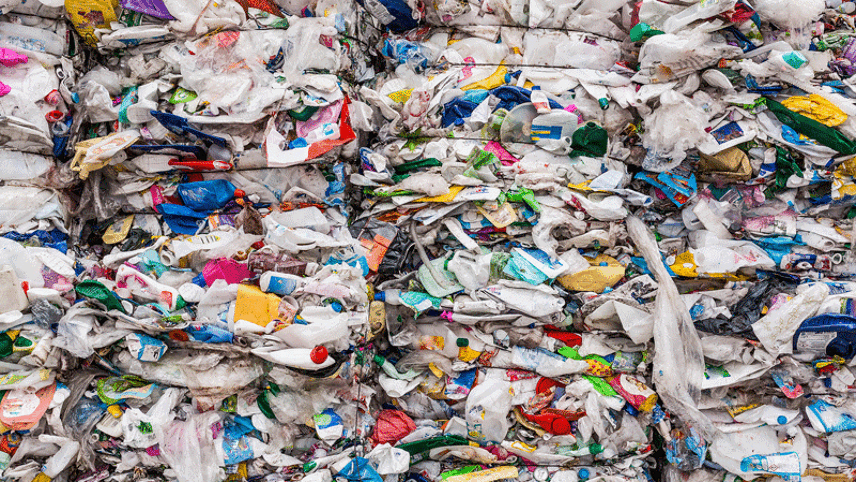
UK’s Plastic Packaging Tax set to be reformed
The UK Government is set to reform the Plastic Packaging Tax, arguing that changes to the scheme could help raise funding to scale chemical recycling innovations.
The Plastic Packaging Tax was introduced in April 2022. It applies at a rate of £200 per tonne to plastic packaging that includes less than 30% recycled content, covering imported packaging as well as packaging manufactured in the UK.
Today (27 April), the Department for Business and Trade and the Treasury have outlined a string of changes to the UK’s tax system, in an event known as the annual Tax Administration and Maintenance Day.
One of the changes proposed is a reform of the Plastic Packaging Tax, which Ministers have argued could help to scale chemical recycling innovations. The Department for Business and Trade is proposing the use of a ‘mass balance’ approach to calculate the percentage of chemically recycled content included in plastic packaging.
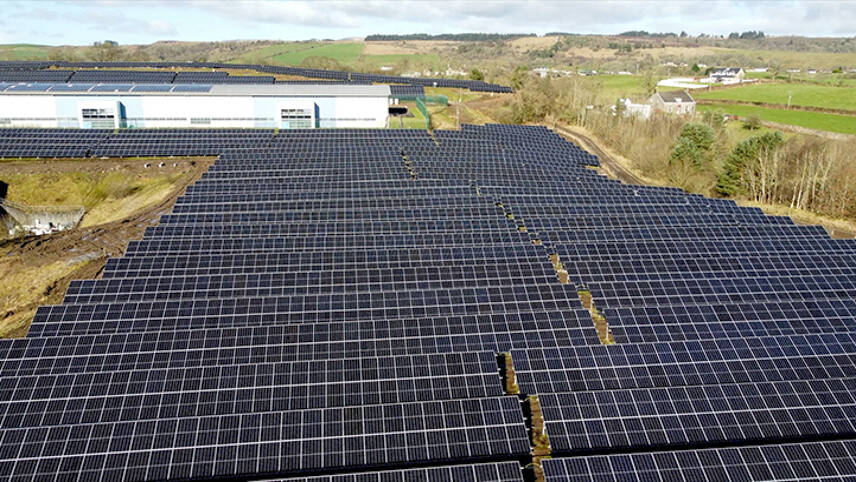
Scottish Water switches on ‘solar giant’ at treatment site in East Dunbartonshire
Scottish Water has invested £5m to install 8,448 ground-mounted solar photovoltaic (PV) panels at its most energy-intensive site, claiming that the “solar giant” will assist with the company’s efforts to reach net-zero emissions by 2040.
The new onsite installation has seen almost 8,500 PV panels installed at Balmore Water Treatment Works in East Dunbartonshire. The new system, which is now online, will provide 19% of the facility’s electricity needs, saving around 1,100 tonnes of CO2 equivalent annually.
Scottish Water claims the site will generate 4.45 GWh of energy annually – enough to power around 1,500 standard UK homes.
The Balmore site, which serves more than 560,000 people, has also been fitted with three electric vehicle (EV) charging points. These charging points will support the company’s efforts to transition its 1,600 fleet of vans and tankers to clean electricity.
Commenting on the announcement, outgoing chief executive of Scottish Water, Douglas Millican, said: “This PV scheme at Balmore Water Treatment Works near Torrance is a prime example of how we can use existing Scottish Water assets to adapt, invest, and innovate, in order to support a flourishing Scotland. It is a hugely important milestone for us in our net zero journey.
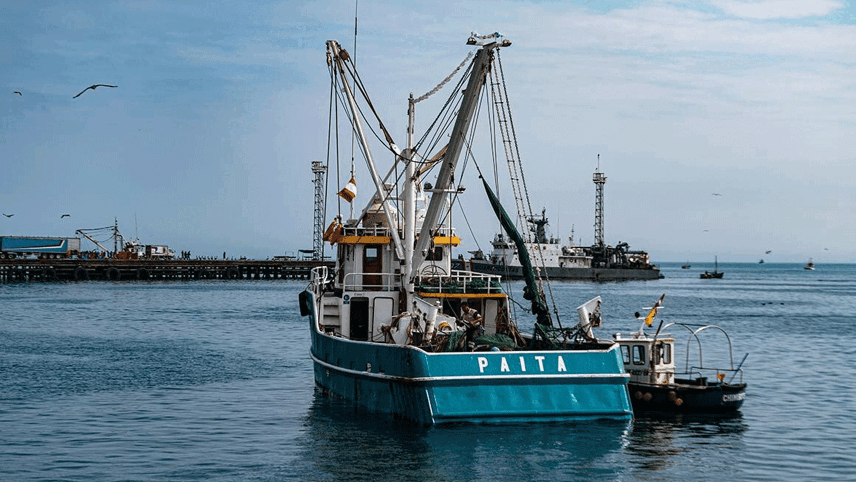
Major firms back WWF-led plan to unlock $100m of finance for sustainable fisheries
Major fish feed companies including Cargill and Skretting are supporting the creation of a new innovative financing model for fisheries which could unlock $100m+ for sustainability efforts in the sector by the end of the decade.
The financing model was unveiled on Wednesday (26 April) by NGO WWF and impact investment advisory Finance Earth. Called the Fisheries Improvement Fund, the fund will provide upfront funding to enable the creation of Fishery Improvement Projects (FIPS).
FIPs are multi-stakeholder initiatives that see fisheries making changes including procuring more sustainable feed, ending overfishing, conserving and restoring biodiversity and reducing bycatch. Fisheries ultimately strive to gain certification from the Marine Stewardship Council (MSC).
Typically, FIPs involve local government, NGOs, scientists, fishery managers, fishers and companies upstream and downstream in the fishery’s value chain. FIPs must track and publicly report progress every six months.
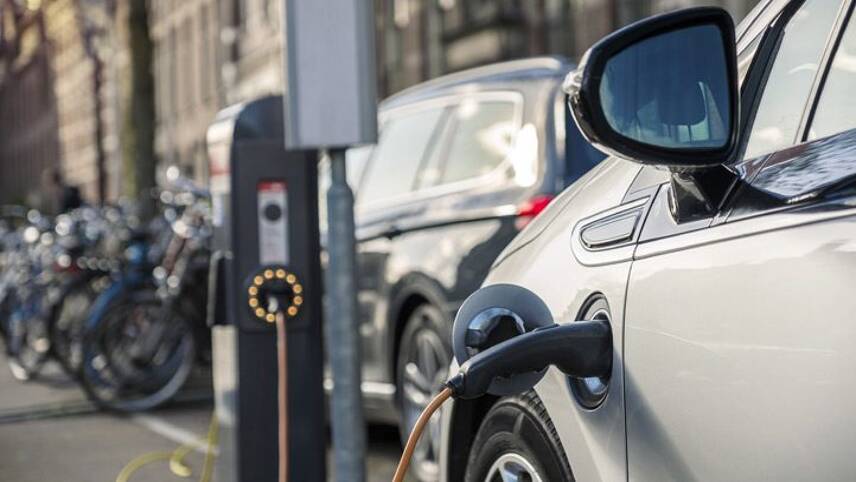
Report: Global EV sales to climb 35% in 2023
Global sales of electric vehicles (EVs) look set to break new records in 2023, with a new report from the International Energy Agency claiming that sales will grow by one-third and that electric cars will account for almost one-fifth of the total car market by the end of the year.
The new edition of the IEA’s annual Global Electric Vehicle Outlook, published today (26 April) has found that 10 million EVs were sold globally in 2022. This accounts for cars, rather than vans and other forms of EVs.
The EV market is set to grow even more in 2023, the report states, growing by another 35% to more than 14 million vehicles. As such, EVs are estimated to account for 18% of the total car market by the end of the year, up from 14% in 2022 and 4% in 2020.
“Electric vehicles are one of the driving forces in the new global energy economy that is rapidly emerging – and they are bringing about a historic transformation of the car manufacturing industry worldwide,” IEA’s executive director Fatih Birol said.

UK Government to face High Court challenge over oil and gas expansion plans
The High Court has ruled that it will hear challenges to the UK Government’s decision to issue a new licencing round for North Sea oil and gas last year.
Uplift and Greenpeace are challenging the decision, made under Liz Truss, on the basis that the emissions generated from the consented projects would undermine the UK’s legally binding commitment to net-zero by 2050 and its signing of the UN’s Paris Agreement on climate change.
The crux of their arguments are that the Government has not properly assessed the greenhouse gas emissions from burning any oil and gas extracted from fields permitted under new licences.
Ministers are also being accused of failing to listen to its independent climate advisory body, the Climate Change Committee (CCC). The CCC stated in early 2022 that the Government’s climate “stress tests” for oil and gas projects are not sufficient. It urged the Government to consider a formal presumption against exploration, meaning that the vast majority of new licences would not be granted.
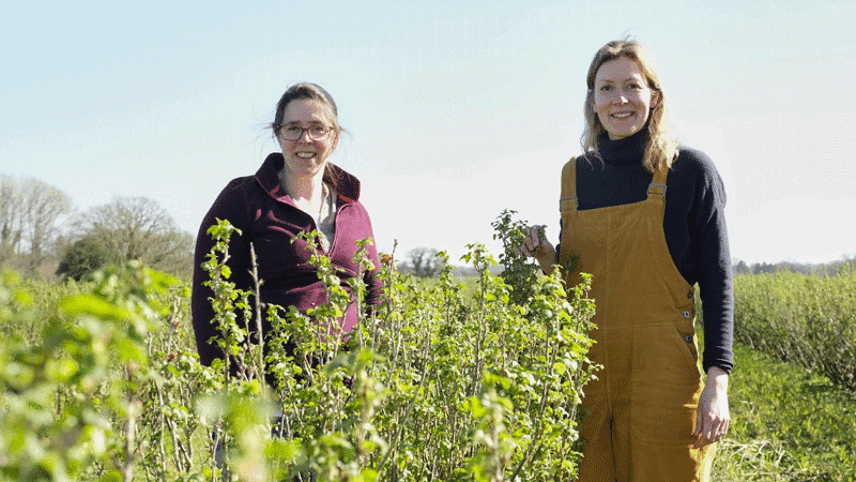
Ribena to trial regenerative blackcurrant farming in ‘bold’ new project
Ribena’s parent company has unveiled a research project to reduce greenhouse gas emissions from the growing of blackcurrants through regenerative farming practices.
The scheme will take place across much of the 60 hectares of blackcurrant production at Gorgate Farm in Norfolk, which has been growing blackcurrants for Ribena since the 1950s.
Suntory Beverage & Food Great Britain and Ireland (SBF GB&I) launched the ambitious project in collaboration with the University of East Anglia, Suntory Holdings and Soil Ecology Laboratory.
As part of Suntory Group’s overall ambition to support crop resilience and reduce carbon emissions from its supply chain, it aims to reduce Scope 3 greenhouse gas emissions from blackcurrant production and improve soil health so that it can support plant resilience and increase the amount of carbon it can sequester.
The pilot project will launch this month, backed by investment from Suntory Holdings Limited, and will continue for at least three years.
